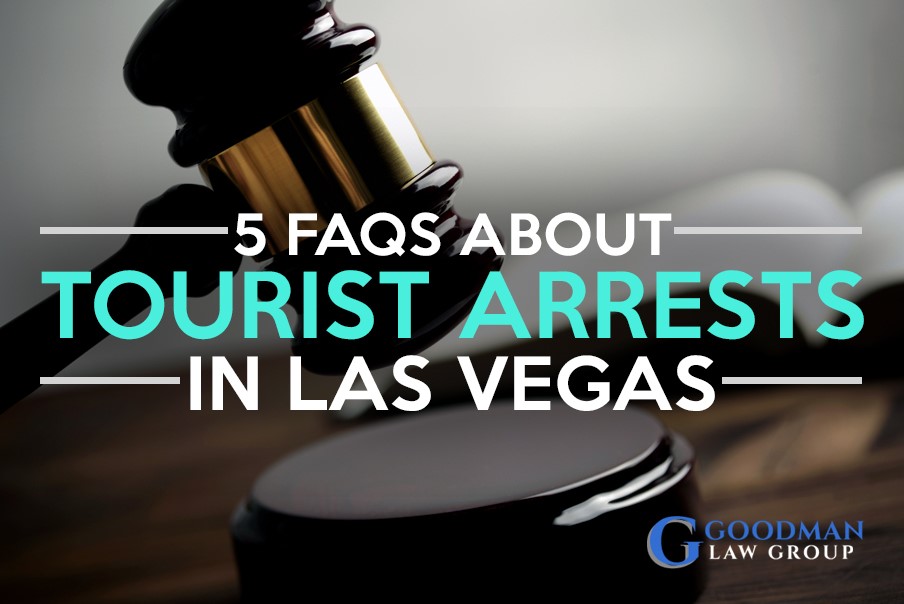
Many tourist arrests happen in Las Vegas because visitors tend to forget the law while enjoying what the city has to offer. Here are 5 FAQs about out-of-state or tourist arrest in Las Vegas:
1. What happens after a tourist gets arrested due to a criminal offense?
Everyone is entitled to post bail in Las Vegas, regardless of the person’s state of residence. The only exception is when a person is charged with murder or first degree kidnapping. Moreover, he can be granted with an “own recognizance” release. This means that he can be released without posting any bail, depending on the nature of his charge and criminal history. On the other hand, there are cases when a tourist will not be released because the Judge orders a house-arrest (while wearing a GPS bracelet), requiring him to have a residence in Las Vegas.
2. Is the tourist required to attend the criminal proceedings after he was released?
The tourist can purposely file a notice of non-appearance at the Preliminary Hearing, commonly known as a Sargent Waiver. In addition, several non-felony dispositions can be handled through the mail by returning a written notarized authorization. This means that the accused allows his lawyer to enter a plea on his behalf. This can save him time and money from traveling to Las Vegas for the proceedings.
3. Is the tourist required to stay in Nevada for the criminal proceedings after he was released? Or he can go back to his home state?
In general, there are no pre-trial conditions of release that will require him to stay in Nevada. However, the bail bond company will monitor him electronically. This will require him to regularly communicate with them. Besides that, having a pending charge normally restricts a person from traveling out of the country.
4. If the tourist has a personal criminal defense attorney in his home state, is it still necessary to hire a local attorney?
Although it is possible for an out-of-state lawyer to request a permission from the courts to handle a particular case in Las Vegas, there’s a small chance that it will be approved. An out-of-state lawyer cannot represent him in court, unless he/she is licensed by the Nevada State Bar to practice law in Las Vegas Courts. Therefore, it is always better to hire a local lawyer who’s familiar with the court system, Judges and prosecutors in Las Vegas.
5. Will his criminal record reflect in his home state?
Every conviction (federal or state) is recorded into the National Crime Information Center (NCIC) database. This will show up in any background check across the country. On the other hand, the tourist can apply for the sealing of his criminal record after waiting for the statutory period of time such as:
- 2 years for most Misdemeanor convictions;
- 5 years after a Gross Misdemeanor conviction;
- 7 years after a category E felony;
- 12 years after a category C or D felony;
- 15 years after a category A or B felony; (from the date of release from actual custody or discharge from parole or probation in Las Vegas, whichever occurs later)
Once the case has been sealed, the previous offender can truthfully deny under oath. For example, he can say that he has never arrested or convicted of a crime when applying for a job.
Whether you are a resident or a tourist in Las Vegas, you should always be aware of the possible trouble that you might face when you are arrested for a criminal charge in Las Vegas. Contact a criminal defense attorney in Las Vegas for a legal counsel.

